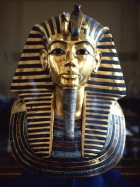Britain & Ireland
What was it about industrialisation that led to the emergence of a woman’s movement in Victorian Britain? Why do we see so many people fighting for so many rights and liberties in this period and what are the origins of some of the issues we still campaign on today? This section includes our major series on Social and Political Change in the UK from 1800 to the present day. There are also articles and podcasts on the often violent relationship between England and Ireland during this period and England’s changing relationship with Scotland and Wales. Read more
Sort by:
Date (Newest first) | Title A-Z
Show:
All |
Articles |
Podcasts |
Multipage Articles
-

Lord Palmerston
ArticleClick to view -

The Urban Working Classes in England 1880-1914
ArticleClick to view -

Bertrand Russell's Role in the Cuban Missile Crisis
ArticleClick to view -

The Uses of History in the Twenty First Century
ArticleClick to view -

Joseph Priestley's American Dream
ArticleClick to view -

Heritage and History
ArticleClick to view -

'Spy Fever' in Britain, 1900 to 1914
ArticleClick to view -

The Origins of the Local Government Service
ArticleClick to view -

Two Babies That Could Have Changed World History
ArticleClick to view -

The Rainbow Circle and the New Liberalism
ArticleClick to view -

The Gallipoli Memorial, Eltham
ArticleClick to view -

A Social History of the Welsh Language
ArticleClick to view -

Eighteenth-century Britain and its Empire
ArticleClick to view -

William Morris, Art and the Rise of the British Labour Movement
ArticleClick to view -

Cholera and the Fight for Public Health Reform in Mid-Victorian England
ArticleClick to view -

Cooling Memories? Why We Still Remember Scott And Shackleton
ArticleClick to view -

'Wanted, The Elusive Charlie Peace': A Sheffield Killer Of The 1870s As Popular Hero
ArticleClick to view -

Louis, John, and William: the 'Dame Europa' pamphlets, 1870-1871
ArticleClick to view -

1939 After Sixty Years
ArticleClick to view -

What's New About New Labour?
ArticleClick to view

